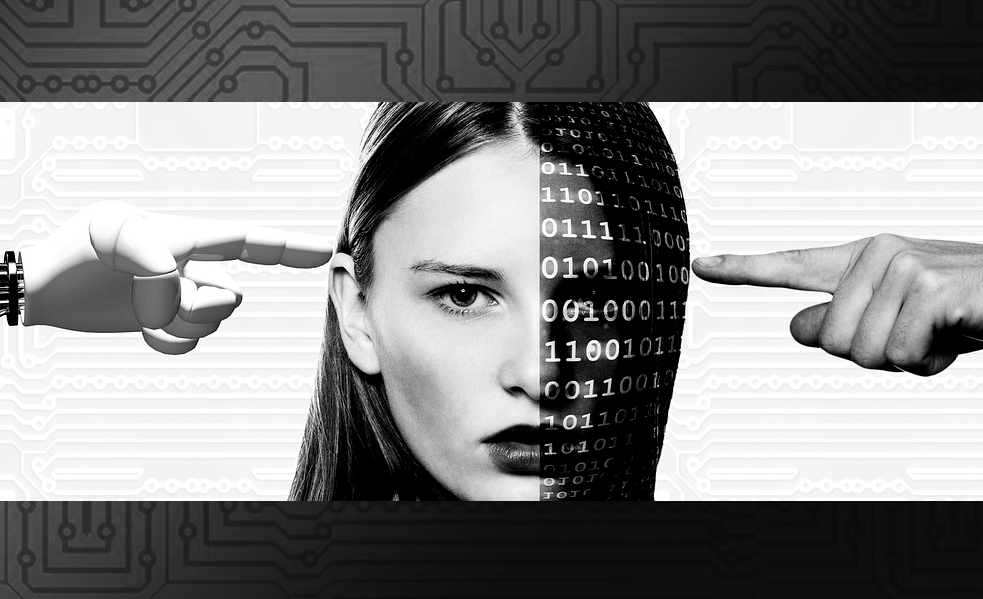Now Reading: Cyber crimes during Covid-19
-
01
Cyber crimes during Covid-19
Cyber crimes during Covid-19
“There exist no Riches in the world of Cybercriminals. Hence, no one is immune to Cybercrimes nowadays.”
The world has witnessed the most devious havoc of all times, and the criminal minds do not cut them some slack as well. The entire globe has struggled for health facilities, immunity, medications, better economies, job opportunities, etc. All this time, crime never subdued. It has exponentially shot to heights.
It all began with the start of the year when the pandemic situation took up the ladder to affect people across the globe. Health was at stake. And when it came to health, no corporation or organization was ready to deal with anything which came at the cost of health. The World
Health Organization (WHO) declared COVID-19 as a Pandemic on March 11, 2020. People were stuck in their homes spending time with the families and acquaintances, in the majority. Since in the past two decades, the internet has taken over an individual’s personal space, the lockdown was a new internet-driven personal time. Everybody was completely isolated with the internet spending much more time online. Internet capacity was maintained by multiple organizations for work and, entertainment.
It was, for sure, a foreload for the cybercriminals to come into the profitable act with an increased rate. The cyber-attacks began to grow rapidly during the times of pandemic. Not only small organizations or individuals were affected, but almost all the domains were targeted such as Critical infrastructures, MNCs, Government official sites, etc. According to the sources of INTERPOL 1, within a four-month period (January to April) some 907,000 spam messages, 737 incidents related to the malware and 48,000 malicious URLs related to COVID-19 were sent. The social, economic, psychological, and emotional factors were exploited critically. Thus, landing people into the perpetual state of suffering at all fronts.
Exploiting the Pandemic Vulnerabilities
Analysing human behaviour, attitude and psychology is the foremost step for anyone to begin with an attack. It is necessary to study A to Z about the victim. While there was an amplitude of factors affecting the people, the cybercriminals engineered new techniques as a bait for which people can fall easily.
The vulnerabilities discovered by attackers were in the name of COVID-19. It is a well-known and well-predicted fact that people are afraid of what might happen to them or their loved ones on the health front. The economy and health conditions were unpredictable. By exploiting such weaknesses of a human, numerous types of attacks took place.
A COVID-19 Threat list has also been released for public awareness. Few of them are as follows:
Kinds of Cyber-attacks during COVID-19
Various Adversary groups and APTs will continue to over-utilize the pandemic havoc spread the world over by scrutinizing various types of well-known cybercrimes. Usage of keywords like COVID-19, Government domains such as gov.in, vaccines, coronavirus, etc. act as a veil to persuade people with its authenticity. The major attacks were as follows:
-
PHISHING ATTACKS: Using sites appearing to be true to steal personal information. For the entire duration of the pandemic, people have been victimized by phishing emails concerned with Coronavirus. The subject lines were as:
-
2019-nCov: New confirmed cases
-
2019-nCov: Coronavirus outbreak
-
2020 Coronavirus Updates
-
Such mails redirect click to a fraud website where malicious actors try to steal personal information such as credit card details, usernames and passwords, gallery, and so on. For example, a phishing attack was conducted to lure people to purchase tenders promoting bulk purchase schemes for hand sanitizers, PPE kits, visors, or false drugs to cure coronavirus.
Also, other than the mails the new kind of emerging phishing attack is through SMS. In the name of coronavirus, people have received numerous SMS attacks such as:
Latest, on 1 September 2020, CERT-In has observed a phishing campaign where targeted users were being attacked with an email as “email.gov.in”. The list of such spoofed phishing URLs collected by CERT-In are as follows:
-
hxxps://loveindiamail.000webhostapp.com
-
hxxps://email-gov.in/indexi.php
-
hxxps://safebrowsingindia.000webhostapp.com/secure.html
-
hxxps://emalegovin.000webhostapp.com/secure.html
-
hxxps://email.gov.in.mailgovin.com
The sender pretends to be using NICs email and asks users to verify their accounts. The link acting as a honey drop redirects the victim to input their login credentials.
3. RANSOMWARE ATTACKS: Many such attacks have frozen medical institutions systems to extract a handsome amount of money. So, the already existing critical situation is worsened and would remain the same till the amount demanded is paid. INTERPOL has detected the top ransomware- NetWalker, Ryuk, and CERBER.
4. MALWARE DISTRIBUTION: They lure people in appearing to be true websites or product advertisements in the name COVID-19.
5. DOMAIN NAME DISTRIBUTION: The bad actors have registered Domain Names that can easily persuade people such as “corona” or “Government” or “COVID”. With the beginning of 2020, at least 114K false domains were registered.
6. DEEPFAKE ATTACKS AND MISINFORMATION: Spreading dreadful messages or to influence people or to create hateful grudge against the government. Deepfakes are the latest trends in circulating untrue facts. When such messages are circulated in bulk, it can lead to information warfare across nations. For instance, China had circulated news across the globe that the epicentre of Coronavirus, Wuhan, has dealt with its last deadly case appreciating itself for the way the country has handled the pandemic. This act was done to re-establish its standard amongst all the nations. People might have believed this to be true, but in reality, no one knows how true the news is. Many such false facts have also been circulated to conduct cybercrimes on the real ground.
SOCIAL ENGINEERING: is also a trending technique to study the target individual- the likes, dislikes, and lifestyle. The traits by which a person is defined are used against him/her to entice the user to fall for a fraud easily.
An analysis report was created by INTERPOL. The member countries and partners sent their data to the organization stating the major threats identified during COVID-19 as follows:
HOW TO SURVIVE SUCH ATTACKS?
Anyone who is exposed to the internet can be a victim of a cyberattack. The modus operandi of a criminal is to extract and extort money or other personal advantages. It is a big-time necessity these days to be cyber aware of what’s yours online and what you can give unintentionally to them. In fact, children who are home and spend their maximum time online either for classes, gaming or online shopping are more exposed to cyber exploitation. In the virtual environment meetings, employees are equally unprotected. They might fall for a fishy link that can steal the company’s confidential information along with personal data. Every age group has to be “Cyber Safe”.
Here are a few tips collected from the world’s renowned organizations that have pledged to protect the citizens of the world from such attacks:
-
First and foremost thing to remember in case you are already attacked, “DO NOT PANIC”.
-
Keep an eye on misspelt words. Such errors are rarely highlighted so this act has to be very keen and careful. Spoofed URLs such as “C0VID-SUPPORT” or “G0VERNMENT UPDATE” have replaced “O” by “0”.
-
To conduct an online meeting using a third-party application, use features such as private rooms or password-protected sessions. Spread a message among the participants to not to share the meeting link online with anyone. Also, during a meeting, the host solely must have access to the present session, until and unless required by someone else. Use the “host-only” feature actively.
-
Criminals often pretend to be an authentic person who can be trusted easily. Beware! Make it difficult for them to reach out to you. Secure all your applications using “Two-way authentication”, or, avoid sharing your personal information as far as you can.
-
Be a quick respondent to the incidents and do not shut down your computer or device immediately. Begin with a backup procedure first.
-
Anything that seems “too good to be true” is not true at all. Remember!
-
Watch out for your emotion. If any message, SMS, mail or call makes you fearful and curious, that might not end up well. Disconnect the contact immediately.
-
Always, keep your backup ready, either on cloud storage or physical external Hard Drives.
-
Keep actively reading “Alerts!” and “Mitigation Techniques” released by authentic and official government websites, such as CERT, FBI, INTERPOL, Ministry Websites or Cybercrime cells.
-
Regularly update your applications.
-
Keep your senses active, 24*7. Be a responsible citizen and raise awareness amongst your peers.
CONCLUSION
There is no time in the future where cyber criminals would keep you at ease. They will rise at an unprecedented rate for sure. The unstable economic situation and frightful era have struck us all hard. In my opinion, people who are already aware of bad incidents happening around are actively seeking more knowledge out of interest or you can say, out of fear. But those who have not fallen prey to such cyber-attacks need to attain some crisp information as to how far the evil criminals can go. In this social sphere of life, it is the duty of each and every citizen to raise the bars of wisdom in cybercrimes and actively share such information amongst those who are carelessly leaving their digital footprints into the hands of crimes but luckily, have not fallen for them.
That was on the ground level for an individual. Speaking of the organizations on the international front, to tackle a global situation in terms of both, health and online frauds, the countries and its organizations must take proactive steps such as a collaboration with other country’s responsible organizations to curb the new cyber pandemic. Sharing of resources, and exchange of knowledge with each other can benefit all. There is an urgent requirement of international cooperation because such crimes do not see national or international borders.
In the end, the sole motto globally should be to keep the cyberspace safe. We all wish to live in a society that shields us from any outsider harm. And for its sake, there is only one person who can save you from the same, and that person is “You”.
REFERENCES
3. APT- (Advanced Persistent Threat) is a stealthy threat actor, typically a nation-state or state-sponsored group, which gains unauthorized access to a computer network and remains undetected for an extended period.
4. https://us-cert.cisa.gov/ncas/alerts/aa20-099a
5. https://www.cert-in.org.in/
AUTHOR:
Kanishka Joshi, National Law Institute University












